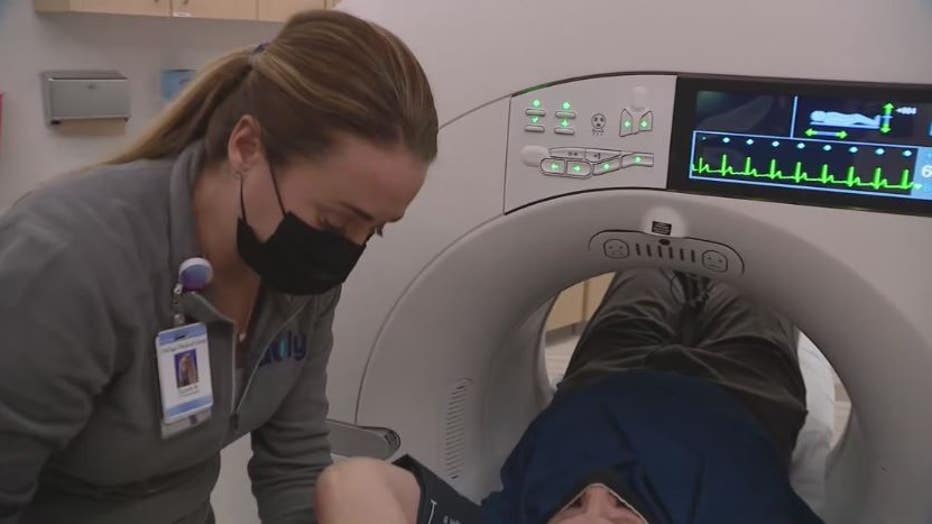Short supply of solution used in CT scans could disrupt some health providers

Supply chain issue impacts dye for data imaging for hospital scans
Production of contrast media also called X-ray dye used to perform CAT or CT scans is now in short supply.
MADISON HEIGHTS, Mich. (FOX 2) - Another wave of COVID-19 lock-downs in China is causing problems for US hospitals. Some are being forced to postpone non-emergency medical procedures because of a shortage of iodine solutions used in cardiac care, CT scans, and X-rays.
"We did receive word from GE about a week and a half ago, that there have been shutdowns at the main production facility in Shanghai China," said Alexis Parker, Oakland Imaging Diagnostic Center.
Production of contrast media also called X-ray dye used to perform CAT or CT scans is now in short supply.
"Your stomach drops because a radiologist will tell you, it sounds corny, but they diagnose with dye," Parker said.
As the Food and Drug Administration monitors the situation, imaging centers across the country are dealing with the impact
"Which has led to them reducing our volume by 80 percent of what we ordered same time period last year," she added.
But Oakland Imaging Diagnostic Center says patient care will not be compromised.
"At this point, we are still 100 percent fully operational, we’re hoping not to get to that point," she said.
The Michigan Health and Hospital Association represents hospitals across the state to improve healthcare and ensure access to affordable coverage.
"For anyone who is worried about this, our providers are certainly aware of the issue and have contingency plans in place in case supplies would be decreased to a level where any of these conservation strategies would have to be implemented," said John Karasinski, Michigan Health and Hospital Association.
But not all medical care facilities are impacted by the shortage in the same way.
"Henry Ford Health is using a different product, Isovue, which is distributed by Bracko," said Dr. Daniel Myers, Vice Chair of Radiology, Henry Ford Health. "Brako is having no problems at all, so our contrast volume has been uninterrupted and it is business as usual at Henry Ford Health."
As for medical centers that have supplies impacted they say they will find ways to overcome this supply chain obstacle.
"Sometimes we can see what we need to without it, so that way we are not impacting patient care for ones who truly do need it," Parker said.


